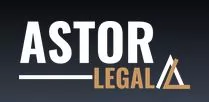- in Europe
- within Criminal Law topic(s)
- with Senior Company Executives and HR
- in Europe
- in Europe
- in Europe
- in Europe
- in Europe
- with readers working within the Media & Information industries
In NSW, police can search your car in limited circumstances. They do not have the power to stop and search vehicles at random.
Some bases upon which police can search vehicles include when they are acting under a search warrant, they have the consent of the driver or they have a 'reasonable suspicion'.
Police powers under LEPRA
The primary authority of the police to carry out searches is outlined within the Law Enforcement (Power and Responsibilities) Act 2002 (LEPRA). This legislation dictates the powers granted to the police when they conduct searches of motor vehicles.
Section 14 of LEPRA allows police to request the identity of drivers and passengers to be disclosed if there are reasonable grounds to suspect the vehicle's involvement in an offence. Additionally, officers have the authority to request the vehicle owner to disclose the identities of the driver and passengers who might have been in the vehicle during the suspected offence.
Failing to reveal the identity of a driver or passenger in such situations constitutes a criminal offence punishable by a maximum punishment of 50 penalty units and/or imprisonment for up to 12 months, under sections 15-18 of LEPRA.
Power to search and seize without a warrant
Police have the power to search and seize without a warrant under section 36 of LEPRA. A police officer can stop, search, and hold a vehicle if they suspect on reasonable grounds that:
- the vehicle contains, or a person in the vehicle has in his or her possession or under his or her control, anything stolen or otherwise unlawfully obtained,
- the vehicle is being, or was, or may have been, used in or in connection with the commission of a relevant offence,
- the vehicle contains anything used or intended to be used in or in connection with the commission of a relevant offence,
- the vehicle is in a public place or school and contains a dangerous article that is being, or was, or may have been, used in or in connection with the commission of a relevant offence,
- the vehicle contains, or a person in the vehicle has in his or her possession or under his or her control, a prohibited plant or prohibited drug in contravention of the Drug Misuse and Trafficking Act 1985,
- circumstances exist on or in the vicinity of a public place or school that are likely to give rise to a serious risk to public safety and that the exercise of the powers may lessen the risk.
During a vehicle stop and search, the police officer can seize and detain items they reasonably suspect to be stolen, potential evidence from a criminal offence, dangerous items, or prohibited narcotics or plants.
Furthermore, section 148 of LEPRA states that a police officer can utilise a sniffer dog without a warrant to detect drugs in a vehicle. If the sniffer dog finds a potential presence of illegal drugs within a vehicle, this serves as reasonable grounds for a lawful search.
What is 'reasonable suspicion'?
A 'reasonable suspicion' was explained in the case of R v Rondo [2001] NSWCCA 540. Justice Spigelman found that a reasonable suspicion is:
- less than a reasonable belief but more than a mere possibility.
- more than a reason to consider to look into the possibility of its existence.
- not arbitrary or random.
- Some factual basis for the suspicion must be shown, although the factual basis does not need to be based on evidence that would be admissible in court.
- When the court is determining whether the police had reasonable grounds to suspect a circumstance said to justify a vehicle search, what is important is the information in the mind of the searching officer.
Courts have found that a reasonable suspicion did not exist when it was based on:
- a person's criminal record alone (Corey O'Connor v R [2010] NSWDC).
- Police "intel" (intelligence) that the car is a "suspect" vehicle and may be involved in a break and entering offence (Streat v Bauer (unreported, Supreme Court of NSW, 16 March 1998)).
- The driver reaches over and places something in the glove box (R v Rondo [2001] NSWCCA 540).
- Attempting to avoid a random breath test (R v Orm [2011] NSWDC 26).
- Robustly refusing to consent to a search (Streat v Bauer (unreported, Supreme Court of NSW, 16 March 1998)).
Each case will turn on its own facts. It is important to be aware that just because your case appears similar to one of those above, does not mean that the court will find no reasonable suspicion existed. You should get advice from a specialist criminal lawyer in Sydney for an evaluation of your case and prospects of success.
Driver's Consent
When a police officer decides to search your vehicle, they will usually ask if you consent to the search. If you consent to police searching your vehicle, the search will be lawful. This is so even if police did not initially have a lawful basis to search your vehicle.
That is why you should never consent to a search of your vehicle. This will allow you to challenge the legality of the search when your case goes to court.
Police are not required to inform the driver about their right to refuse to consent to a search. However, if police lie to you to get you to consent to the search then your consent may be voided and the court may find it to be an illegal search.
Search Warrants
Search warrants fall under Section 47 of the Law Enforcement (Power and Responsibilities) Act 2002. A search warrant is an official document granting the police permission to enter, search, and seize items from a specified property or vehicle. Police must request a search warrant.
Police can apply to an eligible issuing officer for a search warrant in respect of any "premises". The definition of "premises" includes a "vehicle" under section 3 of LEPRA.
Police can only apply for a search warrant if they have reasonable grounds to believe that there is, or within 72 hours there will be, in or on the premises, a thing connected with a "searchable offence". Section 46A of LEPRA defines a "searchable offence" as a drug offence, a firearms offence or any offence involving a stolen thing and any indictable offence.
Applying for a search warrant and having it granted can be a lengthy process. As such, most vehicle searches are not conducted with warrants.
If a search warrant is granted, police have the authority to search a particular vehicle, seize specific items, and confiscate items believed to be in connection with an offence. When a warrant is in place, the police do not need consent to search a vehicle, however, they must provide a copy of the search warrant if requested by a driver or owner. Warrants have a limited duration, and the police need a reasonable basis to remove any items not explicitly mentioned in the warrant.
Random Breath Test
Under Division 2 of Schedule 3 to the Road Transport Act 2013, police have the right to stop a motor vehicle for a random breath test ('RBT'). It is a criminal offence to refuse a breath test. Section 3(1) of the Road Transport Act states that an officer can undertake a breath test if they believe that:
- the individual is or was driving a motor vehicle; or
- the individual is or was situated in the driver's seat of a motor vehicle on a road and is attempting to set the vehicle in motion; or
- the individual was instructing a learner driver.
If you fail to comply with such a request or signal, you will be committing an offence punishable by a fine of up to $1,100.
Can police use an RBT to search my car?
The case of R v Buddee [2016] NSWDC 422 confirmed that police cannot use an RBT to search your vehicle.
In that case, Judge McClintock SC found a search of the defendant's car after being stopped for a random breath test was unlawful. The search was conducted following a negative random breath test, without a warrant or reasonable suspicion. Furthermore, the driver produced a valid license. As a result of the search, police found prohibited drugs and the defendant was charged with drug supply. An objection was made by drug lawyers to the admissibility of evidence obtained from the search.
Judge McClintock SC chose to exclude the evidence due to the conflicting nature of the search. The Judge made the following key observations:
- Police cannot arrest a person for questioning or aiding an investigation.
- The random nature of the motor traffic powers is a very significant interference in the liberties of citizens lawfully going about their business. They are not part of the criminal investigation powers conferred by LEPRA.
- RBT powers cannot be used to justify the arbitrary stopping of vehicles, questioning of occupants or searching of vehicles for crime detection.
- The general right to liberty includes the right to personal freedom of movement.
- The purpose of the random breath test power is the maintenance of road safety and the licensing system. Parliament intended to distinguish motor traffic powers from criminal investigation powers.
- There was no power to detain the driver once she had produced her licence. She was free to go and ought not to have been further detained.
Consequences of an illegal search
Section 138 of the Evidence Act 1995 provides that a court should exclude evidence obtained as a result of an illegal search unless the desirability of admitting the evidence outweighs the undesirability of doing so.
In deciding whether to admit evidence obtained from the illegal search considering the admissibility of the evidence, the court may take into account the following:
- the probative value of the evidence;
- its importance of the evidence;
- the seriousness of offence you are charged with;
- the gravity and deliberateness of the police's impropriety;
- whether the impropriety was a violation of the International Covenant on Civil and Political Rights;
- the difficulty of obtaining the evidence legally; and
- whether any action has or is likely to be taken against police for the impropriety.
This means that a court may exercise its discretion to admit the evidence even if it finds that the search was illegal.
What should you do if police want to search your vehicle?
If a police officer wants to search your car, you should remain
calm and advise them that you do not consent to the search of your
vehicle.
Make sure you do not obstruct them or stand in their way. This ensures you avoid charges of resist officer in execution of duty and preserves your right to challenge the legality of a search in any future court proceedings.
Displaying defensiveness, aggression, or excessive nervousness may be used by the police in the future to justify their search in court.
[View Source]

